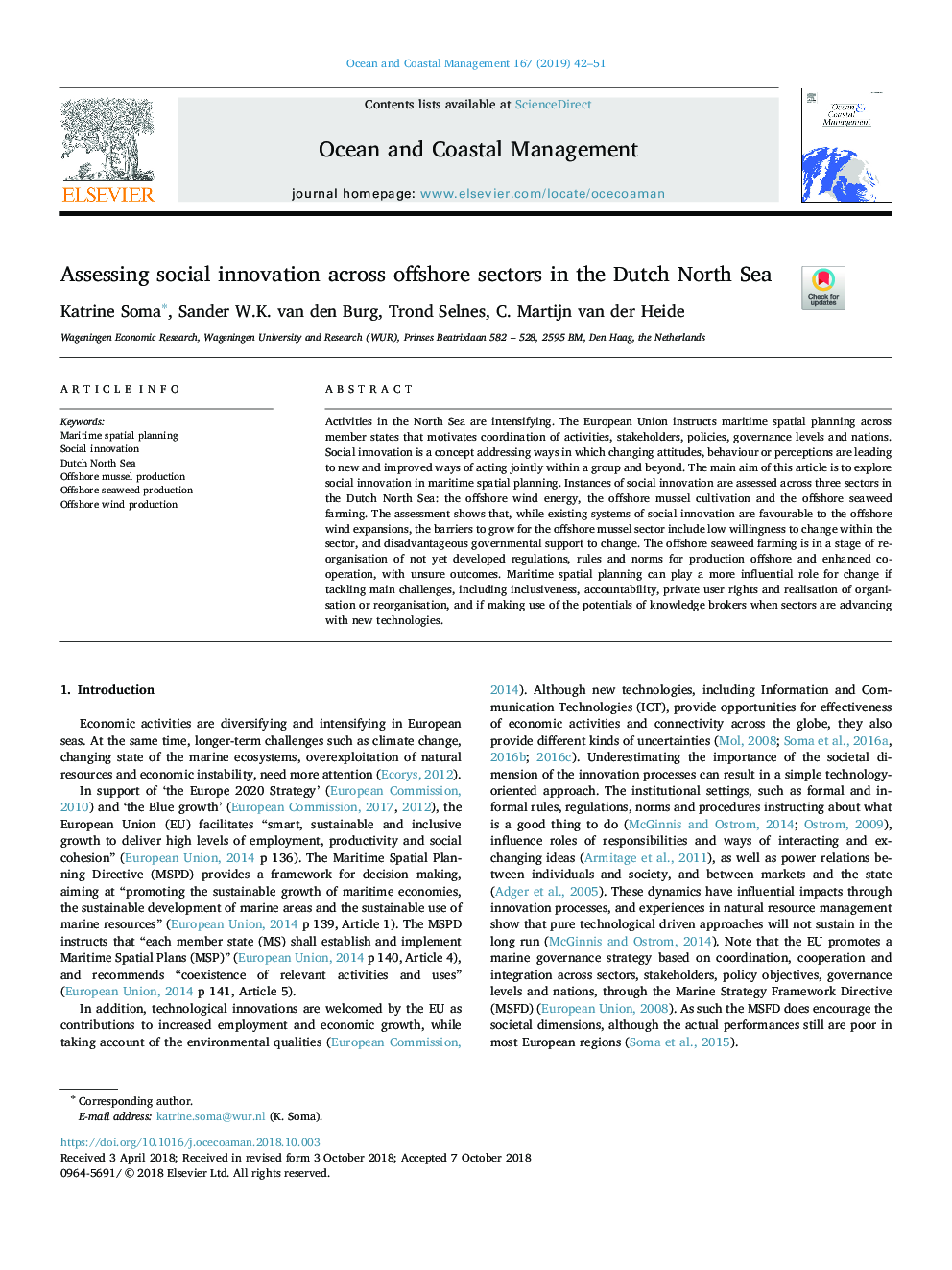| Article ID | Journal | Published Year | Pages | File Type |
|---|---|---|---|---|
| 11011089 | Ocean & Coastal Management | 2019 | 10 Pages |
Abstract
Activities in the North Sea are intensifying. The European Union instructs maritime spatial planning across member states that motivates coordination of activities, stakeholders, policies, governance levels and nations. Social innovation is a concept addressing ways in which changing attitudes, behaviour or perceptions are leading to new and improved ways of acting jointly within a group and beyond. The main aim of this article is to explore social innovation in maritime spatial planning. Instances of social innovation are assessed across three sectors in the Dutch North Sea: the offshore wind energy, the offshore mussel cultivation and the offshore seaweed farming. The assessment shows that, while existing systems of social innovation are favourable to the offshore wind expansions, the barriers to grow for the offshore mussel sector include low willingness to change within the sector, and disadvantageous governmental support to change. The offshore seaweed farming is in a stage of re-organisation of not yet developed regulations, rules and norms for production offshore and enhanced cooperation, with unsure outcomes. Maritime spatial planning can play a more influential role for change if tackling main challenges, including inclusiveness, accountability, private user rights and realisation of organisation or reorganisation, and if making use of the potentials of knowledge brokers when sectors are advancing with new technologies.
Related Topics
Physical Sciences and Engineering
Earth and Planetary Sciences
Oceanography
Authors
Katrine Soma, Sander W.K. van den Burg, Trond Selnes, C. Martijn van der Heide,
